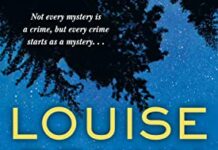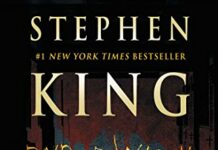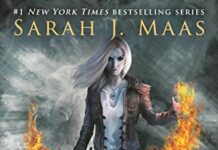
Ebook Info
- Published: 2017
- Number of pages: 624 pages
- Format: Epub
- File Size: 3.92 MB
- Authors: Justin Cronin
Description
You followed The Passage. You faced The Twelve. Now enter The City of Mirrors for the final reckoning. As the bestselling epic races to its breathtaking finale, Justin Cronin’s band of hardened survivors await the second coming of unspeakable darkness.
The world we knew is gone. What world will rise in its place?
The Twelve have been destroyed and the terrifying hundred-year reign of darkness that descended upon the world has ended. The survivors are stepping outside their walls, determined to build society anew—and daring to dream of a hopeful future.
But far from them, in a dead metropolis, he waits: Zero. The First. Father of the Twelve. The anguish that shattered his human life haunts him, and the hatred spawned by his transformation burns bright. His fury will be quenched only when he destroys Amy—humanity’s only hope, the Girl from Nowhere who grew up to rise against him.
One last time light and dark will clash, and at last Amy and her friends will know their fate.
Look for the entire Passage trilogy:
THE PASSAGE | THE TWELVE | THE CITY OF MIRRORS
Praise for The City of Mirrors
“Compulsively readable.”—The New York Times Book Review
“The City of Mirrors is poetry. Thrilling in every way it has to be, but poetry just the same . . . The writing is sumptuous, the language lovely, even when the action itself is dark and violent.”—The Huffington Post
“This really is the big event you’ve been waiting for . . . A true last stand that builds and comes with a bloody, roaring payoff you won’t see coming, then builds again to the big face off you’ve been waiting for.”—NPR
“A masterpiece . . . with The City of Mirrors, the third volume in The Passage trilogy, Justin Cronin puts paid to what may well be the finest post-apocalyptic epic in our dystopian-glutted times. A stunning achievement by virtually every measure.”—The National Post
“Justin Cronin’s Passage trilogy is remarkable for the unremitting drive of its narrative, for the breathtaking sweep of its imagined future, and for the clear lucidity of its language.”—Stephen King
User’s Reviews
Review “Compulsively readable.”—The New York Times Book Review “The City of Mirrors is poetry. Thrilling in every way it has to be, but poetry just the same . . . The writing is sumptuous, the language lovely, even when the action itself is dark and violent.”—The Huffington Post “This really is the big event you’ve been waiting for . . . A true last stand that builds and comes with a bloody, roaring payoff you won’t see coming, then builds again to the big face off you’ve been waiting for.”—NPR “A masterpiece . . . with The City of Mirrors, the third volume in The Passage trilogy, Justin Cronin puts paid to what may well be the finest post-apocalyptic epic in our dystopian-glutted times. A stunning achievement by virtually every measure.”—The National Post “Justin Cronin’s Passage trilogy is remarkable for the unremitting drive of its narrative, for the breathtaking sweep of its imagined future, and for the clear lucidity of its language. The City of Mirrors is a thrilling finale to a trilogy that will stand as one of the great achievements in American fantasy fiction.”—Stephen King“Superb . . . This conclusion to bestseller Cronin’s apocalyptic thriller trilogy ends with all of the heartbreak, joy, and unexpected twists of fate that events in The Passage and The Twelve foreordained.”—Publishers Weekly (starred review) “Readers who have been patiently awaiting the conclusion to Cronin’s sweeping postapocalyptic trilogy are richly rewarded with this epic, heart-wrenching novel. . . . Not only does this title bring the series to a thrilling and satisfying conclusion, but it also exhibits Cronin’s moving exploration of love as both a destructive force and an elemental need, elevating this work among its dystopian peers.”—Library Journal (starred review) Praise for The Passage “Magnificent . . . Cronin has taken his literary gifts, and he has weaponized them. . . . The Passage can stand proudly next to Stephen King’s apocalyptic masterpiece The Stand, but a closer match would be Cormac McCarthy’s The Road.”—Time “Read this book and the ordinary world disappears.”—Stephen King “[A] big, engrossing read that will have you leaving the lights on late into the night.”—The Dallas Morning News The Twelve “[A] literary superthriller, driven at once by character and plot.”—The New York Times Book Review “Gripping . . . Cronin [introduces] eerie new elements to his masterful mythology.”—The San Diego Union-Tribune “An undeniable and compelling epic . . . a complex narrative of flight and forgiveness, of great suffering and staggering loss, of terrible betrayals and incredible hope.”—Milwaukee Journal Sentinel
Reviews from Amazon users, collected at the time the book is getting published on UniedVRG. It can be related to shiping or paper quality instead of the book content:
⭐ I just finished City of Mirrors, and I’m partly writing this review so I can talk about it with somebody. I am a pretty voracious reader, but I’ve found that my patience for long books has waned in past years, maybe because we live more and more in a 140-character world. City of Mirrors is the first book in a very long time that I wanted to savor, that I didn’t want to finish: parts of it left my jaw hanging and my eyes as wide as they can be opened.It is not a perfect book: in my opinion, Cronin’s female characters are all a little too alike and a little too perfect: sassy, smart, headstrong (I know, could be much worse). When the men in his stories fall in love with these women, they fall instantaneously, hard, and forever, whether they’re 14 or 60. But I think that might be my only critique of his writing. So now that’s over with, I can sing its many, many praises.Justin Cronin has a gift for creating sentences. His grasp of language and ability to use it to capture a moment so clearly it’s as though I’m watching a movie is unassailable, whether or not one appreciates his “genre.” He is able to build a story like those cotton candy machines create their cloud of sugar: completely three-dimensional, yet diaphanous, with no more structure than absolutely necessary to hold the creation together. In an era where I truly believe we are witnessing the dumbing down of our language into tweetable, textable shortcuts, Cronin pulls out his dictionary and finds the exact right word to depict the emotion of the moment. There wasn’t a single time when I thought, “this is overwritten,” or “less detail, please:” it was pitch-perfect in its creation of people, relationships, and the scenery upon which those relationships were played out.I won’t give any spoilers: I’ll just say that for me, the book brought a very satisfying end to this epic tale. There might have been one or two places that felt a little too “tidy” and fortuitous, but overall his storytelling walks the balance between fantasy and true, imaginable possibility with utter grace. I am truly sorry to see these characters go, at least until I start reading the whole trilogy all over again, which I guarantee I will.
⭐ I loved the first book, liked the second, but this final novel was absolute torture to get through. Reading it reminded me of the feeling one has watching the last season of a TV show you once enjoyed that should have been cancelled long ago. Reading “City of Mirrors,” I found myself generally angry and aggravated with Cronin. Even his creativity with character names began to seem forced and lame and contrived (“Nessa?” “Olla?” Gag me.) By and large, however, Fanning’s 1980s Cambridge interlude was the worst and most self-indulgent nonsense I have ever been forced into reading. I’m not sure which Harvard Cronin attended in the 1980s, but I was aghast that he got so much of that era wrong. His characters behaved more like they were inhabiting the late 1950s and early 1960s as the segment began that I kept hearing the theme to “A Summer Place” and envisioning Cate Blanchett in her “The Talented Mr. Ripley” dresses. If I wanted to read a period piece about being in my late teens and early twenties during the 1980s I would have reread “Less than Zero” or “Bright Lights, Big City” (although technically Fanning starts school in late ’89.) The entire book required a strong, scolding, editor. The illustrations at the end of the book are an unexpected bright spot – but by then it is far too late.
⭐ If you’re like me, you are here to commiserate about the profoundly lackluster ending to Justin Cronin’s Passage Trilogy. Mr. Cronin won’t see this, nor will his publishers, but airing my grievances will take a bit of the sting out of paying good money for a worthless book. I didn’t originally come here to write a review, only to find validation from others as supremely disappointed as I was by this third book, which bears little resemblance to the previous two. Luckily, I read all three books in quick succession and wasn’t subjected to the added torture of having to wait four years for the final installment to windlessly limp over the finish line – THANK. GOD.In no particular oder, these are my main beefs…First – what the he** happened to Amy? This was HER trilogy and over the course of books two and three, she completely dissolved into absolute nothingness. Honestly, the last interesting thing she did was to free the souls of the virals in the first book. She was supposed to be the savior, her presence in the book was predicated on her powers, of her being the opposite of evil, she was supposed to save the world, but she lived a thousand years and completely FORGOT everything? She wrote some names on a friggin rock – that was her legacy? I have never read an ending as weak as this one.Come to think of it – what happened to ALL of the female characters? They were some of the strongest story points and to end their lives so disappointingly is an extreme disservice to the audience who grew to love them for their strength and tenacity.As mentioned in previous reviews, the hundred-plus pages devoted to Zero’s backstory is mind-numbing, unnecessary, out of place and pointless. I am a “high completion” type, so I didn’t have it in me to skip over this section, although now I really wish I would have. I had the sense at the end that I was supposed to somehow sympathize with Fanning, um, just because he didn’t die with Liz – really? He had time with her, they lived and loved – albeit shortly, but he had that. Killing billions of humans because of it? Not a single shred of sympathy here, bub. ZERO.Pim lighting matches directly after being immersed in water. Um, what? And really, they made matches??Oh and speaking of water – there was way too much fluidity with which virals could be brought back after drowning – I kept thinking – why the heck doesn’t Amy drown Peter, she knew it had that effect???Thousands of people disappearing without raising any concerns – ridiculous given the history of these people.The world in the Epilogue was frustratingly similar to the current world we live in – with cars and restaurants and tenure and male college professors with eyes for female undergrads – I’m surprised Cronin didn’t write something about the patches on the elbows of his tweed blazer. Here was an opportunity to cast the future in an entirely different light – maybe alternative fuels, alternative housing, non-traditional education, non-hierarchical social structures, alternative transportation, etc. But to think that Cronin had it in him to write anything of substance in what was clearly a phoned-in-after-the-check-was-cashed tome of nonsense is clearly asking way too much.Anyone who read the first two books won’t skip City of Mirrors, even if they read the reviews first. Reading all of the other one and two star reviews helped me feel validated and certainly made me question where the heck all of those five star reviews came from – paid for, perhaps? I hope you’ve enjoyed, as I did, this ersatz book club, this space to commiserate, the Amazon City of Mirrors “one star club.” Now I’m off to find something GOOD!
⭐ I binge read all three novels and I so much wanted it to be better than it was. The premise was great; a little The Strain and a little The Stand, but the execution was not so great. I buzzed through whole sections – who really wants to read pages of whining from a guy who killed billions because he didn’t get the girl? I also didn’t like that Fanning got the afterlife he did after said atrocities. I don’t believe in hell but that dude had lots more to learn on the earthly plane. I also didn’t like that Amy had to spend centuriesalone like some Old Testament prophet who pissed off God. Also, Michael and Alicia’s end didn’t track with how they were developed in the series. I’d kinda like to have my time back.Added: I just read the one star reviews and I have to say potential readers should consider those before purchasing this book. If you have to read it – I get wanting to finish the series, use the library. I gave it 3 stars because parts of the first two books are really good. However, the author leaves the series with plot holes you could drive a truck thru. And, I really do want my money back.
⭐ Justin Cronin’s Passage series has always been fascinating for its refusal to easily be pigeonholed into any one genre. On one level, it’s an apocalyptic horror epic, one in which a tribe of vampiric creatures has wiped out most of the population of the Earth. On another level, it’s a survival story, one in which people are working to rebuild civilization in the face of unimaginable disaster. And on yet another level, it’s a rich character drama, one in which people’s choices and character arcs drive the action every bit as much as the threats around them.That refusal to stick to any one genre is both the best and the most frustrating thing about The City of Mirrors, the final entry in the trilogy. At times uplifting, at times heartbreaking, at times terrifying, The City of Mirrors takes all of Cronin’s habits to extremes. This is a book that features the most terrifying and nightmarish sequence of any of the novels to date; it’s also one which dedicates a huge percentage to the backstory of its major villain – a backstory which is mainly about a young student navigating his complicated relationship with his friends and struggling with his attraction to one of them.That means that City of Mirrors can often be frustrating, even while it’s constantly engaging. Cronin’s prose remains solid, and his willingness to focus on character depth has always been one of the pleasures of the series. Every character, no matter how major or minor, gets respect and a fully realized backstory; it’s a choice that’s paid off again and again in this series. The choice to go to this level of depth is a somewhat strange one, and one that undeniably hurts the pacing of this book. And yet, once you finish the book, you start to realize that Cronin has more on his mind than simply wrapping up his apocalyptic epic.Indeed, you could be forgiven for thinking that Cronin had ended the series already. (Spoilers for The Twelve follow.) After all, by the end of the previous book, The Twelve, the titular Twelve – the original infected – had been destroyed, and peace seemed to be inevitable. Yes, Amy’s fate was up in the air, as was Alicia’s, but the story seemed to be at a sort of ending point. (Spoilers end.) Indeed, it’s a feeling shared by many characters in the novel, who feel that the story is at an end, and that humanity is finally entering a world of peace and rebuilding.But The City of Mirrors reminds us that there’s one major threat still surviving, and focuses on that threat: the originator of the plague, a creature only known as Zero. And in Cronin’s hands, this final battle is as much ideological as it is physical. Is there any reason for hope? Does humanity deserve to survive? What, exactly, does survival mean, and at what cost should we attempt to survive? And what part does hope play in all of this? Cronin takes on the questions that underlie so many apocalyptic horror tales – from The Stand to The Fireman to The Walking Dead – and makes them part of the text, thus justifying the time spent on Zero’s backstory. Yes, it’s long, and it sort of wrecks the pacing…but it ends up being central to the philosophical battle at the heart of the novel.That conflict extends all the way to the ending of the book, which finds Cronin looking at the far larger picture as to what it all means. It’s something he’s been hinting at all through the series, and yet that final section of The City of Mirrors is nonetheless quietly moving, giving us a true epilogue to the story, and an ending that nicely brings his themes together. The endings of apocalyptic tales are always complicated – just look at the three very different endings (or lack thereof) of the titles I mentioned above – and it’s rare to find one that moves so strongly toward optimism. And yet, it works here, giving an ending that both wraps up the story and feels emotionally satisfying. The City of Mirrors is an ambitious book, and one that’s far more “literary” and less conventional than its predecessors. And yet, nonetheless, it sticks the landing for the trilogy, satisfying the reader on a variety of levels while still providing the thrills and excitement we’ve come to demand from the series. It may be a little lumpy at points, but I’ll forgive that for the level of satisfaction that I got from the book as a whole.
⭐ If you’ve read the other three and two star reviews on here, my comments will only mirror them. I do not usually comment on Amazon, but I believe Cronin’s finale to his “The Passage” trilogy deserves an exception. The first book, “The Passage”, was great. “The Twelve”, the middle child, was good. This concluding chapter, is dull and, worse, almost a completely different story and genre entirely. The series should obviously have been a duology – the plot content of the second and third books could easily have been combined into a fantastic sequel to the original, in the process eliminating the filler and useless fluff of the last two books.After page 100, that first section of the novel catching up (rather slowly) with what the characters have been up to since the end of “The Twelve”, Cronin decides to start writing a generic “Love Story” piece that would sit nicely with knocks offs of “The Notebook.” Seriously, the pretense of a sci-fi / horror / fantasy novel is completely dropped in favor of a first person account of “My Life and Loves in Harvard circa 199X.”Unfortunately, when we return to the world we recognize, things still don’t ever really get going. There just isn’t a tale to tell in the end. I truly do not understand the four and five star reviews here. This is the most disappointed I’ve been with the continuation of a favorite story since The Phantom Menace and Spider Man 3.
⭐ So I read the first two books in the series as soon as they came out. There was a big lag between #2 and City of Mirrors (#3), and having read probably 100 books in between, I forget a lot of details about the characters and the story. If you’re in the same boat, I recommend going to Wiki and refreshing yourself on the first two. After I did that (about 100 pages in), the book became much more enjoyable. I wouldn’t say I was as enthralled as I was reading the Passage or the Twelve, but it’s still a great book. I used to have intense, crazy Passage-dreams while reading that one. This isn’t quite as creepy, but still very well done. I especially enjoyed the slowest part of the whole book, the backstory of Fanning. I could read a whole book about him, it was so well-written. Well done Justin Cronin! What a trilogy. If it’s not obvious yet, do not read book this until you’ve ready the first two.
⭐ I just finished up my second time reading through the Passage trilogy, and I honestly enjoyed it so much more this time around. Rather than being annoyed by the lack of clarity and reality in the action scenes, I found myself truly draw to the characters and emotions of the story Cronin is telling. In this volume he’s not telling a horror story, he’s writing the Old Testament of a new religion, with all of the various miracles, Christ-figures, and crisis of faith that entails. This should have been obvious during my first readthrough of the series (the recap at the beginning of Book 2 summarizes the journey of the “Apostles” using a King-James style), but I think I was less concerned about destination this time around. It’s also worth pointing out that about a quarter of a way through this book, there is a coming-of-age novella that might be one of the most beautiful things that I’ve ever read. My hat’s off to the author and this wonderful series which defies genre labels and I’m already looking forward to my next read of the series here in 3-5 years.
⭐ I assume that anyone who read this book read the first two in the series, and it is hard to assess this one without mentioning the others. Although I did not write separate reviews for first two volumes, I would have rated “The Passage” 4 stars and “The Twelve” 2 stars. “City of Mirrors” falls in between in quality.One thing that is very apparent in all these books is that Cronin is a much better observer and writer of modern society than he is of apocalyptic horror fiction. Were he not an already established and highly regarded “literary” novelist, I doubt he ever would have been able to get any of these novels published. They all violate principles that publishers supposedly expect–they are overly long, offer a sometimes bewildering number of POV, have plot inconsistencies and flaws, occasional just plain lazy writing, and characters who do things that don’t make sense within the plot lines Cronin creates. On the other hand, Cronin is a talent. He can put together a great sentence or two, and parts of these books are superbly written.For example “The Passage” get 4 stars because the first 100 pages or so, set in the present and describing the looming collapse of society are great. As soon as the plot moves ahead a century to post-apocalyptic America the book becomes merely ordinary. It’s not bad but not excellent by any means. “The Twelve” begins the same way, but readers of the “The Passage” now get the trick and so those first 100 or so pages, while well written are kind of a waste of time. We know that everything that is happening is already far in the past and not real relevant. The rest of “The Twelve” is just plain a mess, with far-fetched unbelievable plotting, and characters acting contrary to past history without apparent motivation.”City of Mirrors” plays this game too, but this time Cronin reserves his contemporary fiction for a mid-point novella about the series’ chief villain Tim Fanning aka Zero. I loved the novella about Fanning, a little Bildungs Roman somewhat in the style of Walker Percy. The problem is this novella within the novel is a huge distraction. Moreover, its apparent purpose within the larger novel, to psychologically justify Fanning’s genocidal murderous nature is just preposterous. It’s not even as if Fanning doesn’t get his girl. He does, he just doesn’t get to have her die in his arms, and then kill himself shortly thereafter. So to prove to the rest of humanity that life is mean and unfair, he kills them all, men, women, children, babies. Uh huh.There are other problems with “City of Mirrors” also relating to Fanning. Why does Fanning decide to unleash his minions on the barely surviving but recovering couple hundred thousand humans of Texas after 20 years. Two obvious questions arise, since he has the ability to act whenever he pleases. Why give them the chance to recover at all, after the events of “The Twelve?” Or why not let them recover for a few hundred or even a few thousand years and then destroy them? Fanning believes he is immortal (whether he in fact is is another dangling plot point never resolved) so looking at an eternity with nothing to do, the thoughtful, insightful Fanning would–you would think–want some humanity around if only to toy with it.Of course, the real reason is that Cronin needs a climatic end to the series while his main characters are still alive, but wants to play around a bit before that happens. So viola, the denouement comes after he gives Peter, Michael, Caleb et al some chance to develop and change but before he has to come up with entirely new characters. He addresses the problem within the novel when Peter and his leadership group ask themselves just this question–why now? And the answer they come up with is “duh, we can’t figure it out.” That is just lazy writing on Cronin’s part.Cronin does wrap some things up at the end of the book with a kind of pseudo-scientific epilogue which I liked in part. The fictional archaeological/anthropological descriptions of what we’ve been reading about were good. What wasn’t so good was yet another sort of “contemporary” love story, set in a far future that is oddly a lot like modern America today, that went along with it.Overall, “City of Mirrors” wraps up an okay apocalyptic horror fiction series in an okay fashion. Not great, not terrible, so 3 stars.
⭐ I tend to read other reviews before I write my own. I am interested in what other people think. I don’t bother to check whether people comment on my reviews but one review by M. Cummings definitely got my attention because that person said it all.Badly edited, petty selfish, self indulgent (was the description used and it’s perfect) “reminiscences”, swell the book unnecessarily. Huge long chapters irrelevant to the storyline. Like M.C. I loved the first book and couldn’t wait for the second. I enjoyed but found it confusing and if I put it down I would have to reread a chapter to find my place.This book – I bought it when it came out in May 2016. I read it last week, from start to finish, after several aborted attempts – I found no less that 5 blue Kindle bookmarks in my copy.What seriously annoyed me: one of the heroes that had fought, worked himself almost to death sails away without the love of his life. No one knows what his end is. His lover – suicide.But the real bad guys after all the evil was over, got a private Eden. Give me a break!The tidy ending is genuine Cronin. He stood up. At last.The story is ended and (supposedly) a new world is started from a handful of survivors. This book does not stand alone and cannot be read and understood without having read the previous two.I have read all of Cronin’s book and I loved “Summer Guest”. That I recommend.
Keywords
Free Download The City of Mirrors – A Novel in Epub format
The City of Mirrors – A Novel Epub Free Download
Download The City of Mirrors – A Novel 2017 Epub Free
The City of Mirrors – A Novel 2017 Epub Free Download
Download The City of Mirrors – A Novel Epub
Free Download Ebook The City of Mirrors – A Novel





